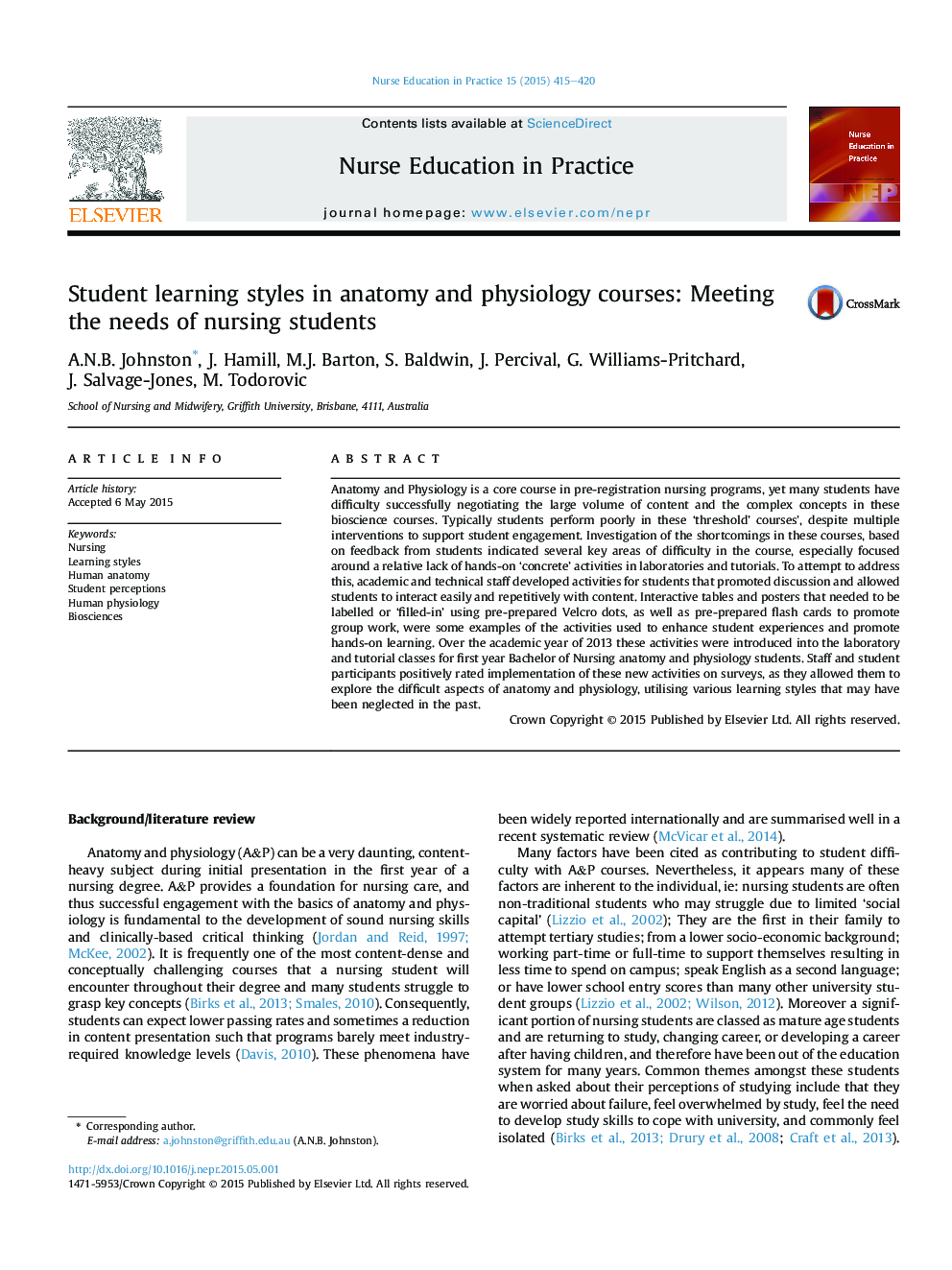| کد مقاله | کد نشریه | سال انتشار | مقاله انگلیسی | نسخه تمام متن |
|---|---|---|---|---|
| 366735 | 621461 | 2015 | 6 صفحه PDF | دانلود رایگان |
• Nursing students identify that they have a range of learning styles and value a range of learning/study tools.
• Hands-on learning activities that are cheap and easy to produce can cater to a range of styles.
• Hands-on activities can enhance nursing student engagement with and academic success in biosciences courses.
Anatomy and Physiology is a core course in pre-registration nursing programs, yet many students have difficulty successfully negotiating the large volume of content and the complex concepts in these bioscience courses. Typically students perform poorly in these ‘threshold’ courses', despite multiple interventions to support student engagement. Investigation of the shortcomings in these courses, based on feedback from students indicated several key areas of difficulty in the course, especially focused around a relative lack of hands-on ‘concrete’ activities in laboratories and tutorials. To attempt to address this, academic and technical staff developed activities for students that promoted discussion and allowed students to interact easily and repetitively with content. Interactive tables and posters that needed to be labelled or ‘filled-in’ using pre-prepared Velcro dots, as well as pre-prepared flash cards to promote group work, were some examples of the activities used to enhance student experiences and promote hands-on learning. Over the academic year of 2013 these activities were introduced into the laboratory and tutorial classes for first year Bachelor of Nursing anatomy and physiology students. Staff and student participants positively rated implementation of these new activities on surveys, as they allowed them to explore the difficult aspects of anatomy and physiology, utilising various learning styles that may have been neglected in the past.
Journal: Nurse Education in Practice - Volume 15, Issue 6, November 2015, Pages 415–420
